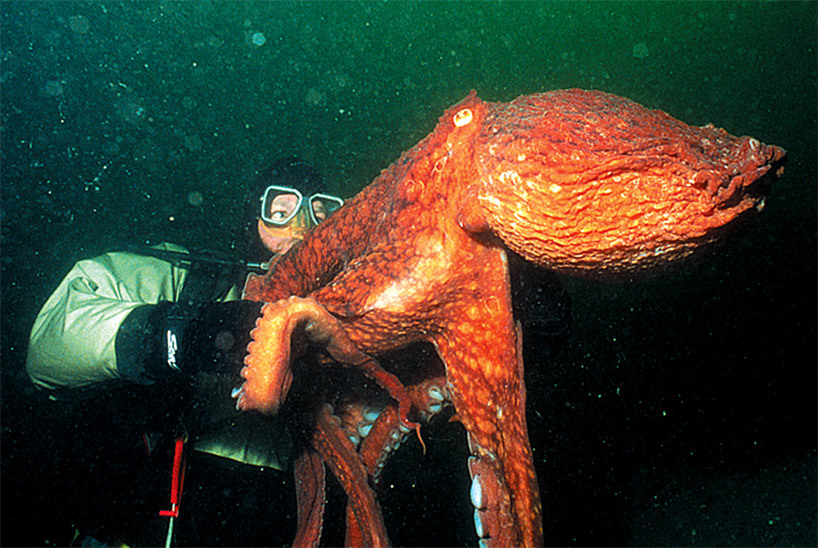I have been dreaming up the idea of an octopus civilization, they interact with humans through trade and such and spread across the seven seas, and ally with humans against their enemies and their human allies engaging in massive naval battles or smth >:D
And of course this can't be any such Octopus, I want the species of Octopus to be human size, to make interactions between them cooler and more "equal" scale etc. Something like the size of Giant Pacific Octopus is perfect for it!
Buuut theres just one problem, octopus these size only ever live in cooler water, the Giant Pacific Octopus only lives in waters colder than 15 Celsius (Their ideal is 7-12 C), while the waters around Europe(A place I'm adamant on them being able to live in) are in the 20s C. Now initially I thought they could just evolve to live in the warmer waters but it turns out that it's more complicated than that.
For one, it says something that all the biggest octopus live in cold water. For two, living in warmer waters have been shown in other large species of octopus to make them smaller, which isn't desired. The warmer waters have less oxygen than colder waters. Warmer water also shortens the lifespan of octopus(Not wanted, I need these sapient octopus to have long lifespans) as well as increases their metabolism (The metabolism increase I'm actually fine with, it even makes for a good reason for their sapience in the first place, i.e. higher food needs forces them to team up to surivive.).
So I humbly ask you, people of Worldbuilding Stack Exchange, if you could come up with a solution? How could an Octopus evolve to, while living in 20s C surface water, both be large(Giant Pacific Octopus large) and not have their lifespans shortened to a speck and their food consumption be through the roof
Note: If there is some sort of technological adaptation rather than evolutionary one that could do the job, that these sapient Octopus could invent very early on, then that'd work too

